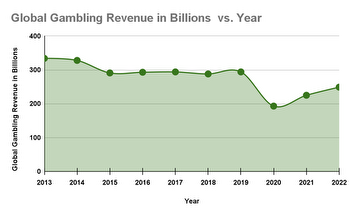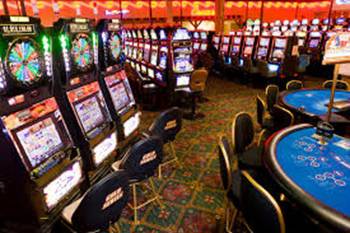How Do Governments Benefit From Legalised Gambling?

The gambling industry has been immensely growing, all over the world, since the last decade. In the past, there were only land-based casinos for gamblers to try their luck. However, the recent shift to online casinos has enormously contributed to this industry's growth. With billions of dollars worth, the casino market has reached milestones. All around the world, gambling has also generated huge revenues by engaging other sectors and providing job opportunities to millions.
Observing the recent spurt in the gambling industry, many countries, such as Norway, legalised gambling. The countries regulated some rules and standards for both physical and online casinos. Many casinos have now secured legal holds in multiple countries by fulfilling the legal requirements. However, some countries still have not legalised the gambling industry in their territory.
The ongoing discussion raises many questions. Many governments are navigating possible growth factors, revenue opportunities, and benefits of legalising gambling. Let's try to investigate how governments are and can benefit by legalising the gambling industry in their respective countries.
Huge Tax Revenues
The primary purpose of legalising any industry in all countries is to generate tax revenues. Governments allow establishments and developers to sell their products or services under the country's territory. In response, the government expects some portion of overall revenue from the developers. Following similar patterns, legalised gambling has generated great revenues. Governments that have legalised gambling and casinos are now benefiting from taxation from the gambling industry.
The governments establish rules and regulations for online and physical casinos when licensing gambling. Both types of casinos provide services and, in return, pay taxes to the government. Countries such as Finland and Norway are generating great revenues by legalising gambling. However, among the world's best casino markets, Las Vegas is unbeatable so far. Las Vegas has the most state-of-the-art casinos in the world. Nevada is earning revenues from the gambling industry by using physical and digital means of gambling platforms.
Another way governments earn revenue is from gamblers. Along with service providers, governments receive tax from the income of gamblers. Governments worldwide can invest in social welfare projects through taxes on the gambling industry.
Increased Employment Opportunities
Any legal industry in a community comes with job opportunities. Similarly, countries with legal gambling have received a lot of job opportunities. The employment rate has grown through physical casinos or online slots. Many governments are supervising casinos in countries with legalised gambling. These gambling places receive guests regularly. Hotels need staff, and casinos require help, operators, estate holders, dealers, etc., have gained employment through the gambling industry.
Similarly, in online gambling, many software developers and operators get a chance to showcase their expertise in their respective fields. Gaming software designers are busy generating high-quality content every day. Along with that, there are operators and management staff that assist gamblers who wish to play online slots UK.
Multi-sectoral Developments
The gambling industry is multi-sectoral. It engages people from different expertise and business sectors. Altogether, gambling benefits people from small businesses and large chains. Imagine a physical casino. From the rental car service that receives you from the airport to hotels' security, food, residence, electricity, games, and service providers, there is a long list of people involved in gambling plays. Casinos have staff for all available services.
Similarly, web developers design the latest interface for an easy and engaging gambling experience in the technology sector. Application developers design new graphics for mobiles, desktops, and smartwatches. The whole scenario showcases a larger picture. People from all sectors of life are generating revenue by providing their skills and products.
The development of all these sectors through the gambling industry promotes business in the country, boosts employment, and ultimately generates revenue. The revenue goes to the government in the form of tax. This system allows governments to take economic and social advantages from the legalised gambling market.
Stimulates Tourism
Talking specifically about land-based casinos, many governments with legal gambling have received immense turnover from tourism. We know that gamblers from all around the world love to visit King Casino and famous gambling sites. Moreover, these casinos organise events for gamblers all around the world. These events and festive preparations give rise to tourism in the country.
Los Vegas has earned profits through tourism. The place is famous for the world's best casinos, and gambling lovers visit the casinos every year. The governments of the area leverage businesses and tourism. Gambling culture promotes tourism in countries with legalised gambling. Local retail sellers get to earn via tourists, which boosts their business.
All the above factors promote the economic growth of legal gambling countries. The gambling industry has connected many business sectors to work together for better income. From employees and small businesses around casino establishments, individuals are making money by becoming part of larger groups. Many governments understand the benefits of legalising physical and online gambling in their countries.
Governments are also trying to control the industry by regulating standards. The rules have kept the gambling industry in balance in some countries.
Some countries have not legalised gambling acts yet in their regions. Some countries represent very partial rules for gamblers. Shortly, the scope of the gambling industry seems to evolve higher due to its capacity to provide billions of dollars to the country's economy.


































